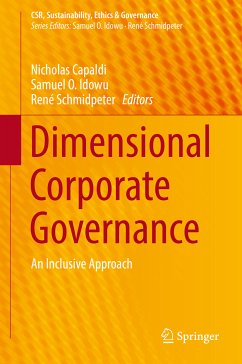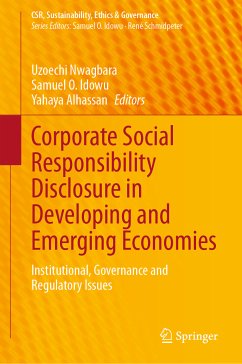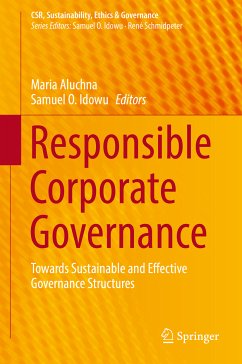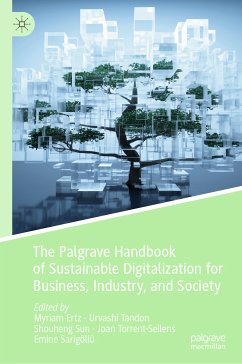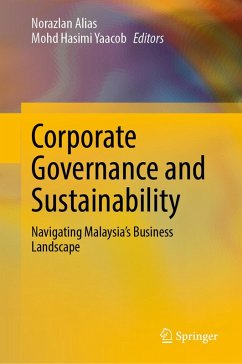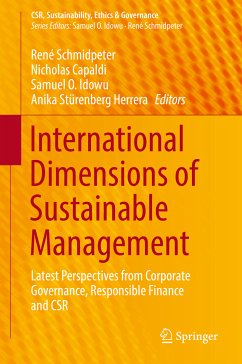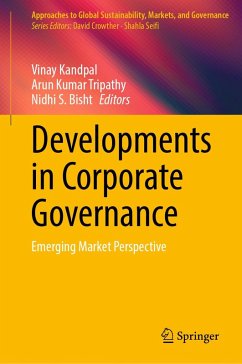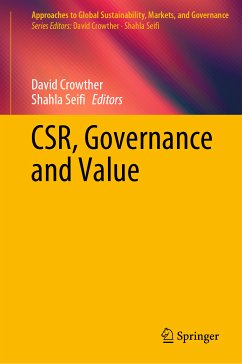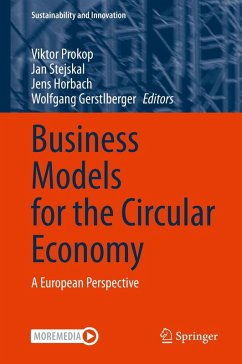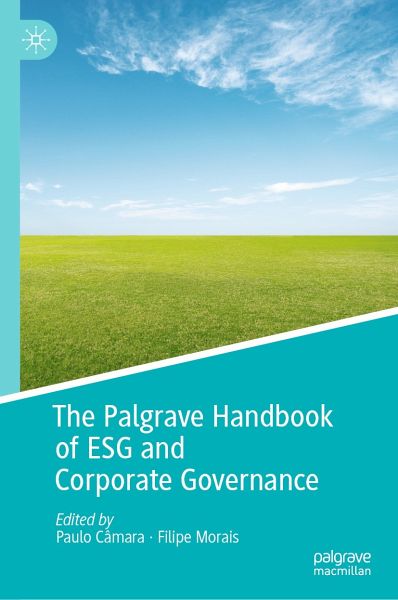
The Palgrave Handbook of ESG and Corporate Governance (eBook, PDF)
Versandkostenfrei!
Sofort per Download lieferbar
Statt: 181,89 €**
136,95 €
inkl. MwSt.
**Preis der gedruckten Ausgabe (Gebundenes Buch)
Alle Infos zum eBook verschenkenWeitere Ausgaben:

PAYBACK Punkte
68 °P sammeln!
Since the 2008 Global Financial Crisis the prevailing economic development model based on an assumption of unlimited resources and, therefore, unlimited growth has been increasingly put into question by academics, policy-making agencies and even industry leaders themselves. Climate change, general environmental and natural resource degradation, widespread inequalities, and systemic governance failures are pressing capitalism to renew itself to deliver sustainable outcomes for a broader base of stakeholders. This has become known in more practical terms as the ESG (Environmental, Social and Gov...
Since the 2008 Global Financial Crisis the prevailing economic development model based on an assumption of unlimited resources and, therefore, unlimited growth has been increasingly put into question by academics, policy-making agencies and even industry leaders themselves. Climate change, general environmental and natural resource degradation, widespread inequalities, and systemic governance failures are pressing capitalism to renew itself to deliver sustainable outcomes for a broader base of stakeholders. This has become known in more practical terms as the ESG (Environmental, Social and Governance) and responsible investment movements. The pressure to change how we organise ourselves as societies and economies has implications for how large and small corporations, public or private, are governed and to the benefit of whom. This Handbook offers a rare combination of pluralistic and multidisciplinary perspectives from law, economics, finance and management, as well as an interesting mix of latest academic thinking and practical recommendations on ESG for boards and executive teams.
Should companies be governed and managed for the benefit of their shareholders alone? Can companies be governed to deliver for shareholders as well as the broader stakeholder base? How can investors allocate capital to advance sustainability? Part I provides a pluralistic discussion of some of these fundamental questions besetting academics and practitioners alike while Part II examines recent regulatory developments and assesses what may need to change in terms of law and regulation to both hold companies to account for sustainability while enabling them to continue to provide vital goods and services. Part III of the book discusses how the different types of companies and investors are currently facing the sustainability imperative and incorporating ESG factors on how they operate and invest. The concluding chapter provides an overview of the key regulatory, ecosystem andboard-level gaps that require urgent and decisive action.
Should companies be governed and managed for the benefit of their shareholders alone? Can companies be governed to deliver for shareholders as well as the broader stakeholder base? How can investors allocate capital to advance sustainability? Part I provides a pluralistic discussion of some of these fundamental questions besetting academics and practitioners alike while Part II examines recent regulatory developments and assesses what may need to change in terms of law and regulation to both hold companies to account for sustainability while enabling them to continue to provide vital goods and services. Part III of the book discusses how the different types of companies and investors are currently facing the sustainability imperative and incorporating ESG factors on how they operate and invest. The concluding chapter provides an overview of the key regulatory, ecosystem andboard-level gaps that require urgent and decisive action.
Dieser Download kann aus rechtlichen Gründen nur mit Rechnungsadresse in A, B, BG, CY, CZ, D, DK, EW, E, FIN, F, GR, HR, H, IRL, I, LT, L, LR, M, NL, PL, P, R, S, SLO, SK ausgeliefert werden.



